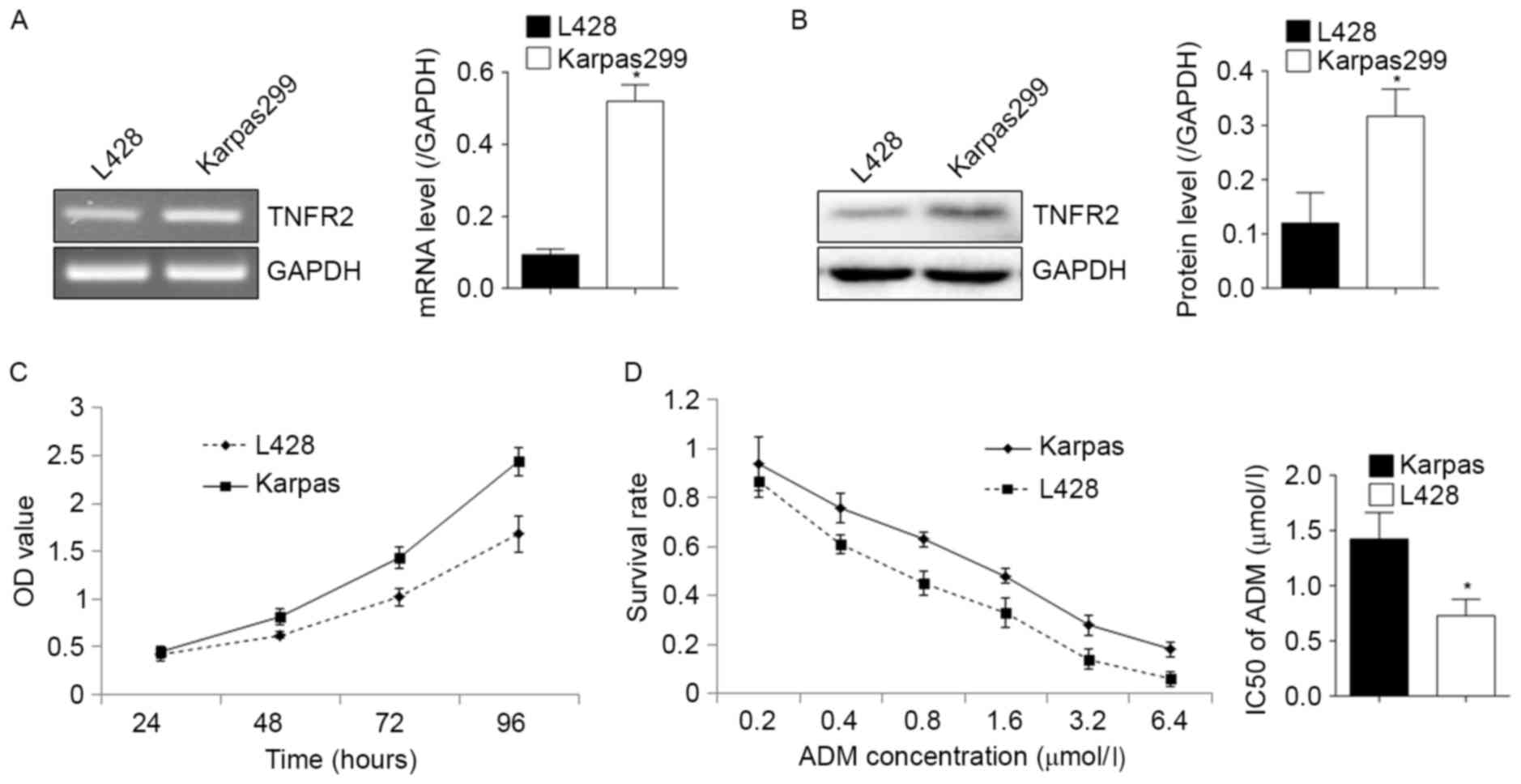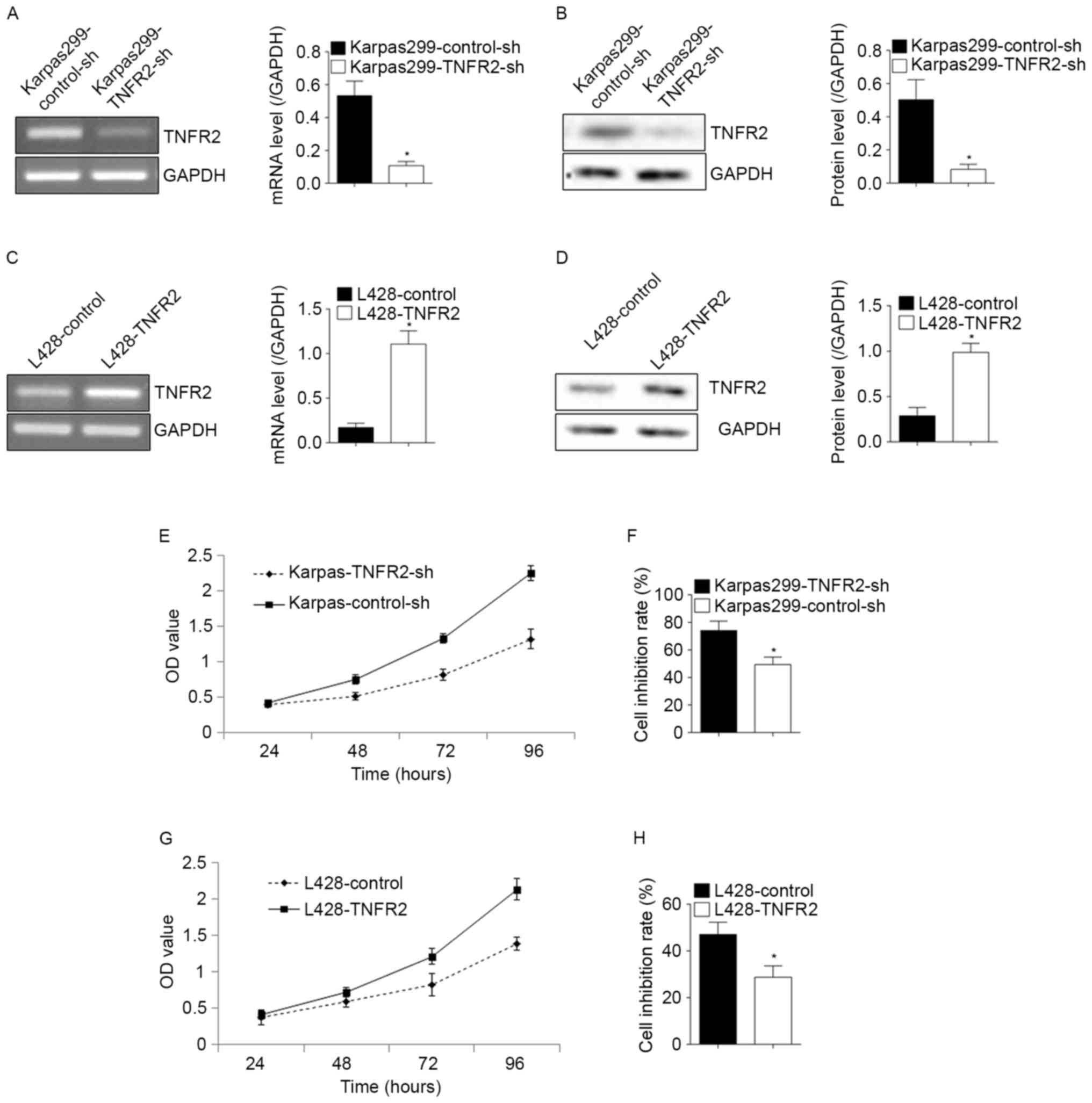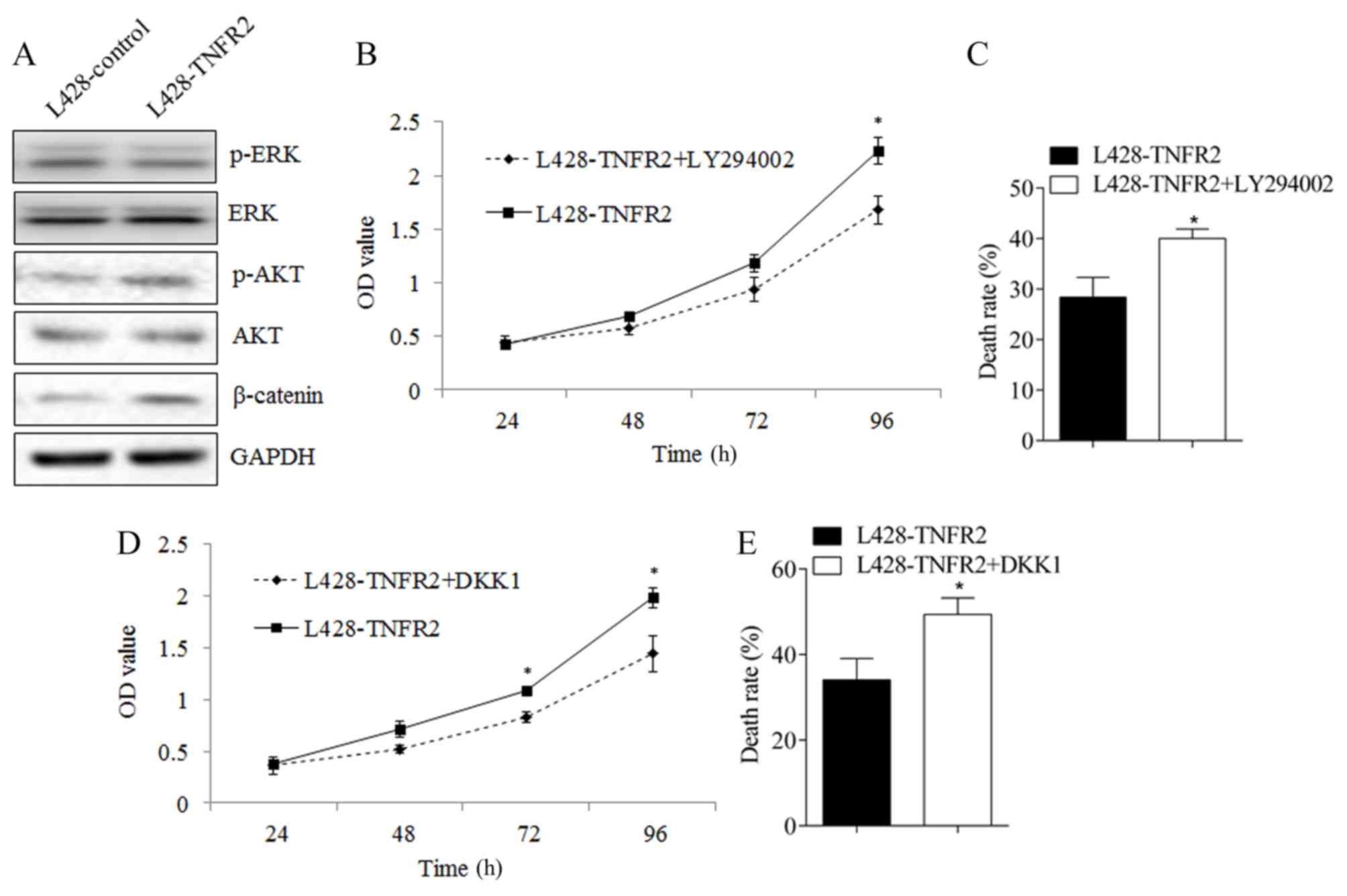|
1
|
Kewitz S, Kurch L, Volkmer I and Staege
MS: Stimulation of the hypoxia pathway modulates chemotherapy
resistance in Hodgkin's lymphoma cells. Tumour Biol. 37:8229–8237.
2016. View Article : Google Scholar : PubMed/NCBI
|
|
2
|
Fino P, Spagnoli AM, Ruggieri M,
Marcasciano M and Scuderi N: Bilateral hand squamous-cells
carcinoma in patient affected with non-Hodgkin lymphoma. Case
report and literature review. G Chir. 36:172–182. 2015.PubMed/NCBI
|
|
3
|
Hu RH, Sun WL, Zhao H, Hui WH, Guo YX, Wan
SG and Su L: Rituximab combined with EPOCH regimen for treatment of
diffuse large B cell lymphoma of the gastrointestinal tract:
Analysis of 4 cases. Nan Fang Yi Ke Da Xue Xue Bao. 36:1291–1294.
2016.(In Chinese). PubMed/NCBI
|
|
4
|
Khandelwal A, Trinkaus MA, Ghaffar H,
Jothy S and Goldstein MB: A case report of unusually long lag time
between immunotactoid glomerulopathy (itg) diagnosis and diffuse
large B-cell lymphoma (DLBCL) development. BMC Nephrol. 17:1402016.
View Article : Google Scholar : PubMed/NCBI
|
|
5
|
Yang D, Fu X, Zhang X, Li W and Zhang M:
Therapy-related acute myeloid leukemia in patients with lymphoma: A
report of four cases and review of the literature. Oncol Lett.
10:3261–3265. 2015. View Article : Google Scholar : PubMed/NCBI
|
|
6
|
Tang W, Lu Y, Tian QY, Zhang Y, Guo FJ,
Liu GY, Syed NM, Lai Y, Lin EA, Kong L, et al: The growth factor
progranulin binds to TNF receptors and is therapeutic against
inflammatory arthritis in mice. Science. 332:478–484. 2011.
View Article : Google Scholar : PubMed/NCBI
|
|
7
|
Guo Z, Li Q, Han Y, Liang Y, Xu Z and Ren
T: Prevention of LPS-induced acute lung injury in mice by
progranulin. Mediators Inflamm. 2012:5407942012. View Article : Google Scholar : PubMed/NCBI
|
|
8
|
Zhao YP, Tian QY, Frenkel S and Liu CJ:
The promotion of bone healing by progranulin, a downstream molecule
of BMP-2, through interacting with TNF/TNFR signaling.
Biomaterials. 34:6412–6421. 2013. View Article : Google Scholar : PubMed/NCBI
|
|
9
|
Tanimura Y, Kokuryo T, Tsunoda N, Yamazaki
Y, Oda K, Nimura Y, Mon Naing N, Huang P, Nakanuma Y, Chen MF, et
al: Tumor necrosis factor alpha promotes invasiveness of
cholangiocarcinoma cells via its receptor, TNFR2. Cancer Lett.
219:205–213. 2005. View Article : Google Scholar : PubMed/NCBI
|
|
10
|
Johrer K, Janke K, Krugmann J, Fiegl M and
Greil R: Transendothelial migration of myeloma cells is increased
by tumor necrosis factor (TNF)-alpha via TNF receptor 2 and
autocrine up-regulation of MCP-1. Clin Cancer Res. 10:1901–1910.
2004. View Article : Google Scholar : PubMed/NCBI
|
|
11
|
Minich SS: Brentuximab vedotin: A new age
in the treatment of hodgkin lymphoma and anaplastic large cell
lymphoma. Ann Pharmacother. 46:377–383. 2012. View Article : Google Scholar : PubMed/NCBI
|
|
12
|
Dahlmann M, Okhrimenko A, Marcinkowski P,
Osterland M, Herrmann P, Smith J, Heizmann CW, Schlag PM and Stein
U: RAGE mediates S100A4-induced cell motility via MAPK/ERK and
hypoxia signaling and is a prognostic biomarker for human
colorectal cancer metastasis. Oncotarget. 5:3220–3233. 2014.
View Article : Google Scholar : PubMed/NCBI
|
|
13
|
Miao B and Degterev A: Targeting
phospshatidylinositol 3-kinase signaling with novel
phosphatidylinositol 3,4,5-triphosphate antagonists. Autophagy.
7:650–651. 2011. View Article : Google Scholar : PubMed/NCBI
|
|
14
|
Sebio A, Kahn M and Lenz HJ: The potential
of targeting Wnt/β-catenin in colon cancer. Expert Opin Ther
Targets. 18:611–615. 2014. View Article : Google Scholar : PubMed/NCBI
|
|
15
|
Xu F, Zhou G, Han S, Yuan W, Chen S, Fu Z,
Li D, Zhang H, Li D and Pang D: Association of TNF-α, TNFRSF1A and
TNFRSF1B gene polymorphisms with the risk of sporadic breast cancer
in northeast Chinese han women. PLoS One. 9:e1011382014. View Article : Google Scholar : PubMed/NCBI
|
|
16
|
Warzocha K, Bienvenu J, Ribeiro P, Moullet
I, Dumontet C, Neidhardt-Berard EM, Coiffier B and Salles G: Plasma
levels of tumour necrosis factor and its soluble receptors
correlate with clinical features and outcome of Hodgkin's disease
patients. Br J Cancer. 77:2357–2362. 1998. View Article : Google Scholar : PubMed/NCBI
|
|
17
|
Heemann C, Kreuz M, Stoller I, Schoof N,
von Bonin F, Ziepert M, Löffler M, Jung W, Pfreundschuh M, Trümper
L and Kube D: Circulating levels of TNF receptor II are prognostic
for patients with peripheral T-cell non-Hodgkin lymphoma. Clin
Cancer Res. 18:3637–3647. 2012. View Article : Google Scholar : PubMed/NCBI
|
|
18
|
Nakamura N, Goto N, Tsurumi H, Takemura M,
Kanemura N, Kasahara S, Hara T, Yasuda I, Shimizu M, Sawada M, et
al: Serum level of soluble tumor necrosis factor receptor 2 is
associated with the outcome of patients with diffuse large B-cell
lymphoma treated with the R-CHOP regimen. Eur J Haematol.
91:322–331. 2013.PubMed/NCBI
|
|
19
|
Engert A: ABVD or BEACOPP for advanced
Hodgkin lymphoma. J Clin Oncol. 34:1167–1169. 2016. View Article : Google Scholar : PubMed/NCBI
|
|
20
|
Ajish JK, Kumar Ajish KS, Chattopadhyay S
and Kumar M: Glycopolymeric gel stabilized N-succinyl chitosan
beads for controlled doxorubicin delivery. Carbohydr Polym.
144:98–105. 2016. View Article : Google Scholar : PubMed/NCBI
|
|
21
|
Hu SY, Tai CC, Li YH and Wu JL:
Progranulin compensates for blocked IGF-1 signaling to promote
myotube hypertrophy in C2C12 myoblasts via the PI3K/Akt/mTOR
pathway. FEBS Lett. 586:3485–3492. 2012. View Article : Google Scholar : PubMed/NCBI
|
|
22
|
Bai T, Lian LH, Wu YL, Wan Y and Nan JX:
Thymoquinone attenuates liver fibrosis via PI3K and TLR4 signaling
pathways in activated hepatic stellate cells. Int Immunopharmacol.
15:275–281. 2013. View Article : Google Scholar : PubMed/NCBI
|
|
23
|
Li N, Cui J, Duan X, Chen H and Fan F:
Suppression of type I collagen expression by miR-29b via PI3K, Akt,
and Sp1 pathway in human Tenon's fibroblasts. Invest Ophthalmol Vis
Sci. 53:1670–1678. 2012. View Article : Google Scholar : PubMed/NCBI
|
|
24
|
Sawa M, Masuda M and Yamada T: Targeting
the Wnt signaling pathway in colorectal cancer. Expert Opin Ther
Targets. 20:419–429. 2016. View Article : Google Scholar : PubMed/NCBI
|

















